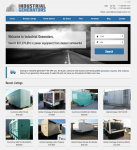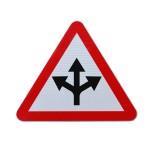Are you aware of the huge market there is for used industrial equipment? If not, chances are you’re leaving a lot of money on the table by letting your inventory sit out in the yard to depreciate.
Liquidating this inventory instead, by selling or renting it, can greatly expand your business and increase your revenue. This article will cover key strategies for managing, listing and marketing your used industrial equipment.
Overview
The basic concept here is to understand that your used equipment, and the used equipment of your customers, has significant value that many don’t recognize. But if you recognize it, you stand to put more money in your pocket in the coming year.
Let’s say you take a unit in that needs some repairs. Essentially you can bill those repairs to yourself and then turn around and sell that unit. The amount of time and energy you put into fixing it can be deducted, and you will have increased the cost basis and at the same time reduced the tax burden.
Also, keep in mind used industrial generators can be rented for anywhere between $800 and $5,000 a month. As a bonus to the initial sale or rental agreement, you’re apt to take on a new service contract which will bring in even more revenue and an additional customer who may very well purchase a brand new machine from you in the future.
Leverage Your Position as a Dealer
Dealers have an advantage when it comes to selling or renting used machines. First, with your licensed and trained service technicians, you become an automatic trusted source. Second, you have the ability to completely overhaul a system, test and check various performance benchmarks, and you can provide repair records and performance history.
As a dealer, you’ll also be one of the few people to come across incredible deals on wholesale equipment. This is because you are constantly selling new machines and seeing existing units in place on a regular basis.
You’ll come across situations where a customer is not necessarily looking to sell a unit, they most likely have no idea anyone would be interested in purchasing it in fact. But by offering them a bit of cash for it and taking it off their hands, you can then take that machine back to your shop, repair it and clean it up, then sell or rent it for a nice profit.
And finally, one of the greatest advantages dealers have is the ability to open up new sales paths. Many new sales are halted simply because a customer may have a hard time wrapping their head around the idea of buying a new system when their old one is still working. But dealers who are in the used equipment business can take the old system off of a customer’s hands and offer a little bit of cash that can then be used to buy a new unit from you.
Sales and Rental Strategies for Used Equipment
If what you’ve read so far has opened your eyes to the reality of used equipment netting huge gains for your business, you’ll want to follow these guidelines so you can begin selling and renting your own units right away.
Managing Your Inventory
Taking property inventory of the units on your lot is rule number 1. This task is so important that we highly recommend you appoint dedicated personnel to the job.
A couple of times every month they will need to walk the yard and jot down the current inventory, recording specific data about each unit such as:
They should also take images of each unit as you’ll want to include these when you list your inventory. Make sure the images are well-lit, show the control panel, and offer a variety of angles.
How to Effectively List Your Equipment
Probably the biggest hurdle to getting inventory listed is making the time to do it. We recommend you make a schedule and commit to it. By simply carving out some time each month for inventory management and listing, you can generate new business and increase your revenue.
Before listing your equipment, you’ll want to make sure you have the proper system in place. You have a few options for this:
Depending on whether or not you have the required infrastructure in place already, you can list your inventory on your own website.
If your website is not currently equipped for this you may want to speak to a programmer who can add the needed space and structure to your site for your listings. Make sure that the system’s database can be easily updated frequently.
And finally, you can choose to work with a listing company, such as Industrial Generators, who will list your inventory for you and send you targeted leads.
However you choose to list your units, either on your own website or through a listing company, make sure that you have access to tracking data. This is very important because knowing how much traffic your equipment is getting or how many views a certain unit has received can tell you how you may need to adjust things to finally make that sale.
In our experience, if a piece of equipment has received hundreds of views but there have been zero inquiries on it, it may be a sign that your asking price is too high.
Setting a Fair Price
When you’re ready to list, there are a couple of methods you can use to figure out your pricing.
One way is to find comparable units (whether on auction sites or classified sites) and use these listings to target your own asking price.
Another way is to do a little math and take 60% – 70% of a new unit’s price, provided the unit was built in the last ten years, or take 35% – 40% if the unit is between 10 – 20 years old. Note that you will have to consider factors such as condition of the unit, hours on it, maintenance records and service history.
What Information Should Your Listing Include?
In order to have a successful sale, your listing should provide the following information:
- Price. You absolutely must include an asking price in your listing or you won’t get many inquiries on your unit. Feel free to word your copy in a way that leaves the pricing negotiable, but provide at least a starting point.
- Service History. Before buying a used piece of equipment, people will want to know that the unit was well-maintained. For this reason you should provide a service history and a brief description of any maintenance records in your listing, and offer full records upon purchase. If you begin to buy used equipment wholesale, make sure to ask for all of the service records so that you may pass these on to those you sell or rent it to.
- Photos. You must provide at least one photo (although more is better) of the machine that is being sold. It is rare that you will receive any inquiries on a listing that has not included any pictures. People want to see the item before they will take any further action.
Responding to Leads
If you have a solid unit you’re listing and you’ve included the information discussed previously, then you’ll likely get quite a few phone inquiries about it. In our experience the time it takes you to respond to an inquiry has a direct correlation to whether the lead gets closed or not. It’s important that you respond as soon as you can, in fact, we recommend you have a dedicated sales person that will handle all incoming and outgoing calls regarding your inventory.
You’ll have to decide for yourself whether you’re willing to ship inventory if the purchaser is not local. Obviously the further you ship, the greater chance you will have at selling your equipment. It’s a good idea to form a relationship with a reliable and reputable shipping company so when that first sale comes in, you can make one quick phone call and your equipment will be picked up, packed and on its way to the buyer with little effort on your part.
As far as the financial transaction goes, we recommend using an escrow company, like Escrow.com, to handle it. By using an escrow service you will ensure that both the buyer and seller are protected during the entire transaction.
Marketing Online
Currently, the Internet is the leading driver of used industrial equipment sales. If your inventory is not online and it’s not showing up in the major search engines, then you simply won’t get the traffic or the sales.
Working with a listing company like Industrial Generators, who handle not only the listing but the marketing of your equipment, can get your inventory in front of hundreds of targeted leads.
The Bottom Line
Many companies have tens of thousands if not hundreds of thousands of dollars of used industrial equipment just laying out in their yard depreciating instead of making them money. If you ignore your used inventory, you’re ignoring an opportunity to expand your business and put more money in your pocket every month.
 Every standby power system has a transfer switch. They are called this because they “switch” the power from the usual power utility source to the standby system when it is not available. In the event of a power failure the utility electrical load is automatically transferred to the generator. When the utility power is restored the transfer switch knows to automatically switch the electrical load back to the utility.
Every standby power system has a transfer switch. They are called this because they “switch” the power from the usual power utility source to the standby system when it is not available. In the event of a power failure the utility electrical load is automatically transferred to the generator. When the utility power is restored the transfer switch knows to automatically switch the electrical load back to the utility.



